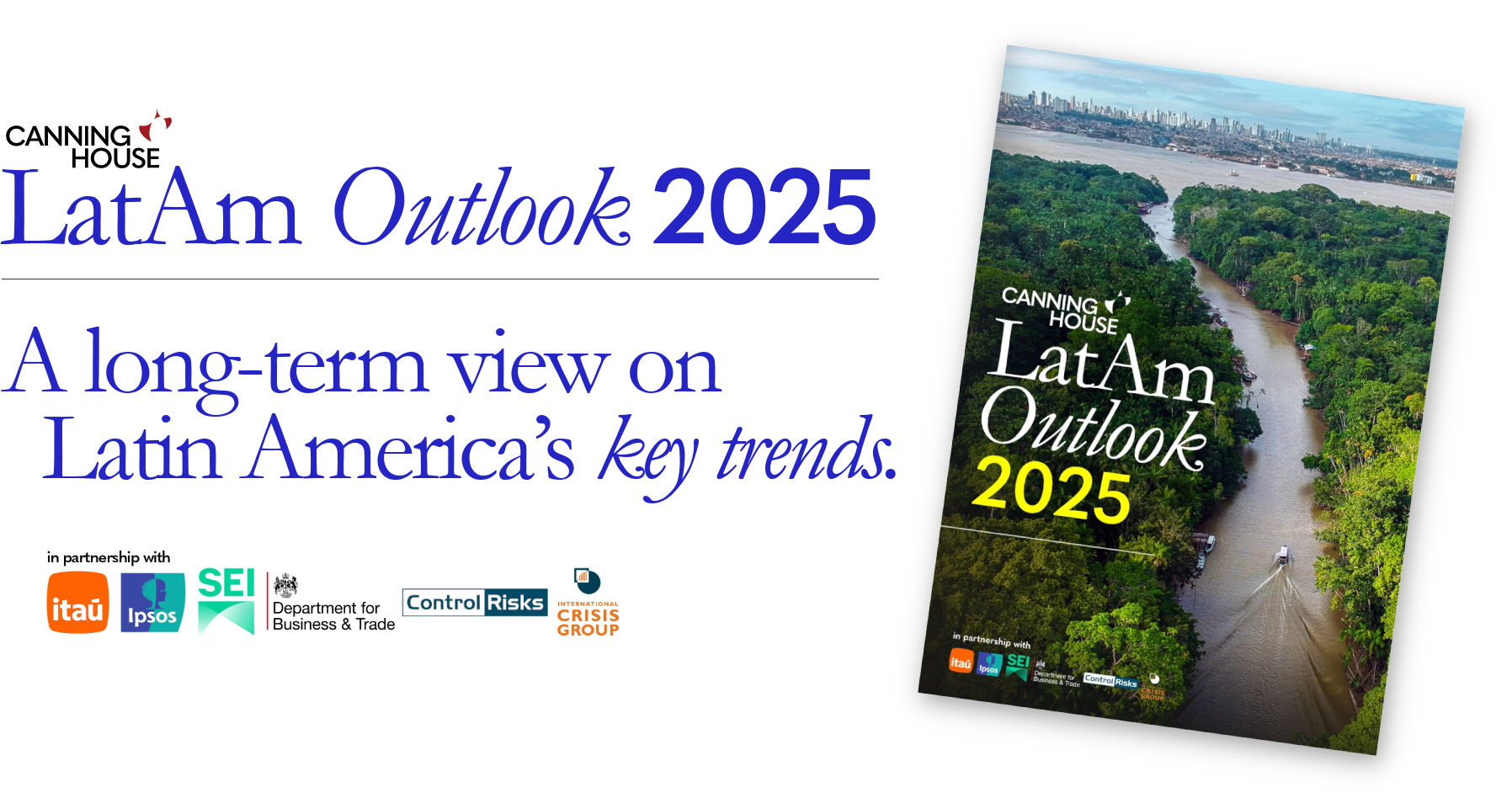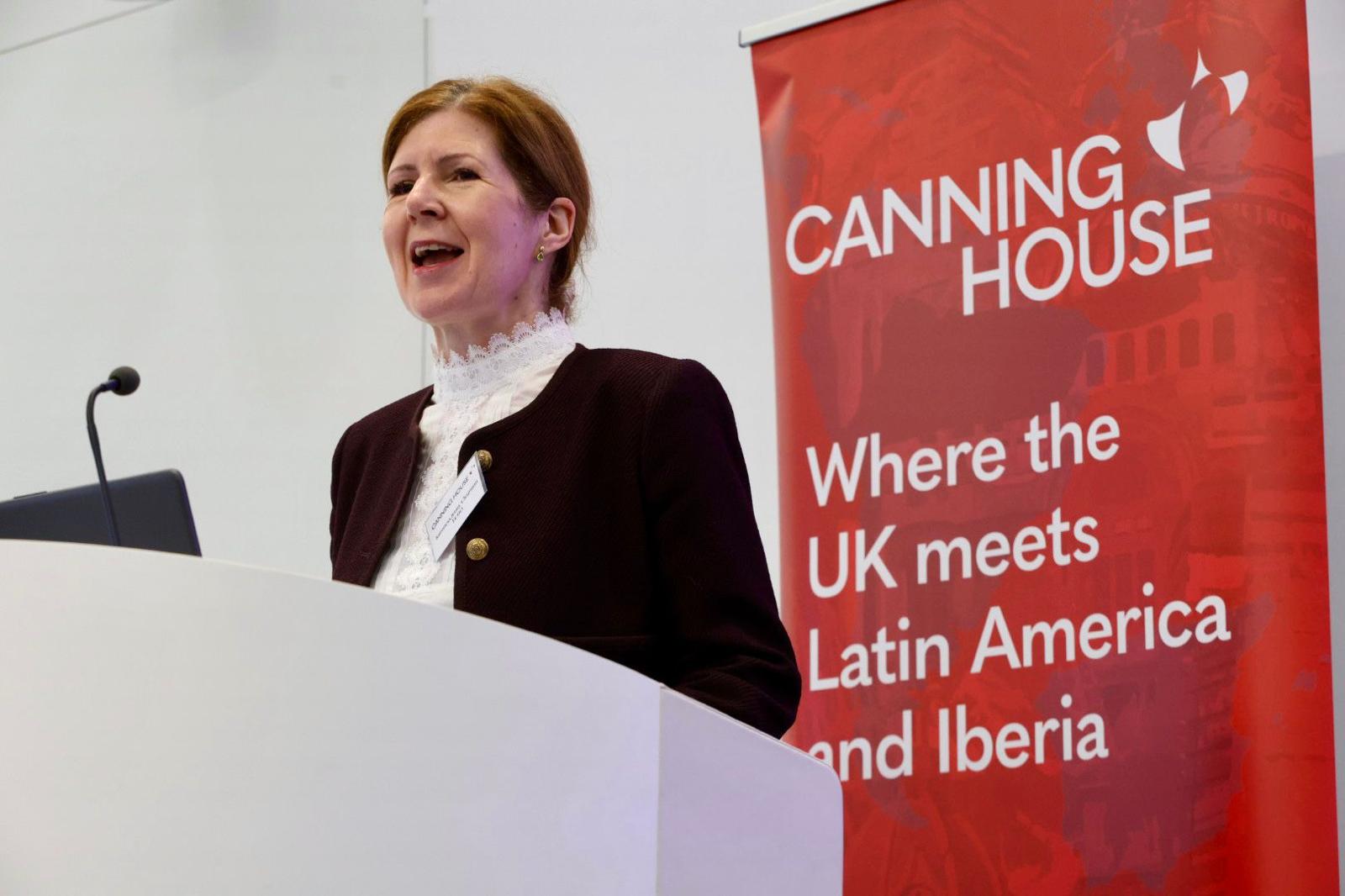The Canning House Mexico-UK Summit
- Finton Hanks
On April 9 Canning House convened the inaugural Mexico-UK Summit, a gathering of high-level figures from across the public and private sectors to discuss the bilateral relationship between two of the world’s largest economies. The headline takeaway from the conference was that the two countries already enjoy a healthy relationship, but in both diplomacy and business there is room and ample reason to expand.
Press
Learn More 

_iewdg.jpeg)
_bbwht.jpeg)
_jchax.jpeg)